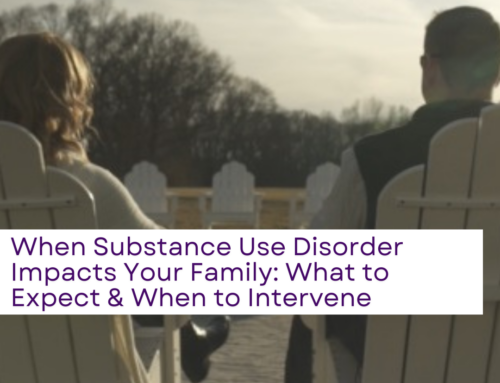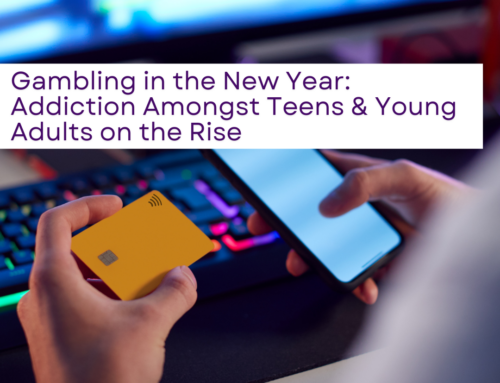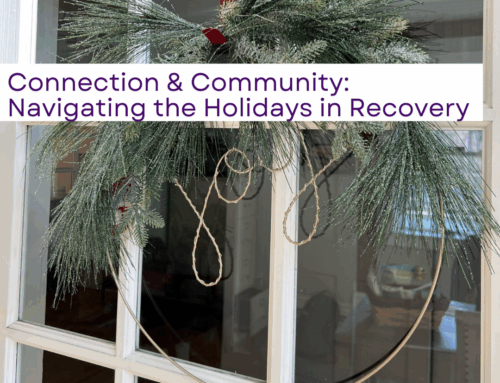
With changing legislation and increasing social acceptance, marijuana use has become more widespread across the United States.
While some users can consume cannabis without significant negative consequences, others develop problematic patterns of use that can lead to addiction and other serious health concerns, including psychosis.
Understanding Marijuana Addiction
Cannabis use disorder (CUD), commonly referred to as marijuana addiction, is a recognized condition in which individuals develop dependence on cannabis, experience withdrawal symptoms when not using, and continue to use despite negative consequences in their personal, professional, or academic lives.
Key Facts About Marijuana Addiction
● Approximately 3 in 10 people who use marijuana have cannabis use disorder
● Young adults (18-25) have the highest rates of marijuana use and CUD
● The risk of developing CUD is higher for those who begin using in adolescence
● The average THC concentration in cannabis products has increased dramatically over the past few decades, potentially increasing addiction risk
Many people mistakenly believe marijuana is not addictive because it doesn’t typically cause physical dependence in the same way as substances like alcohol or opioids. However, psychological dependence can be just as powerful and disruptive to a person’s life.
Warning Signs of Marijuana Addiction
Recognizing problematic cannabis use is the first step toward getting help. Common signs include:
● Using more marijuana than intended or for longer periods
● Spending significant time obtaining, using, or recovering from marijuana
● Experiencing cravings or strong urges to use
● Continued use despite social, occupational, or relationship problems
● Developing tolerance (needing more to achieve the same effect)
● Experiencing withdrawal symptoms when stopping use
● Giving up important activities due to marijuana use
● Using in physically hazardous situations (e.g., driving)
● Difficulty controlling or cutting down use despite wanting to
The Link Between Marijuana and Psychosis
One of the more serious potential consequences of cannabis use is its association with psychosis. Psychosis refers to a mental state characterized by a disconnection from reality, typically involving hallucinations, delusions, or severely disorganized thinking.
What Research Shows About Cannabis Use
Research has established several important connections between marijuana and psychosis:
1. Triggering Acute Psychotic Episodes: High-potency cannabis, especially products with high THC concentrations, can trigger temporary psychotic symptoms in some users.
2. Risk for Vulnerable Individuals: Those with a personal or family history of psychotic disorders like schizophrenia face increased risk when using cannabis.
3. Earlier Onset of Psychotic Disorders: For individuals genetically predisposed to conditions like schizophrenia, cannabis use may trigger earlier onset of symptoms than would have occurred otherwise.
4. Dose-Response Relationship: Studies indicate that heavier, more frequent cannabis use is associated with greater psychosis risk.
5. THC Content Matters: Higher-potency products with greater THC concentrations appear to carry greater risk than lower-potency cannabis.

Warning Signs of Cannabis-Induced Psychosis
Psychosis symptoms that may emerge during or after cannabis use include:
● Paranoia or unusual suspiciousness
● Hearing voices or seeing things others don’t
● Disorganized thinking or speech
● Feeling that thoughts are being controlled or inserted by outside forces
● Believing others can read your thoughts
● Feeling that ordinary events have special personal significance
● Difficulty distinguishing between reality and imagination
Cannabis-induced psychosis typically resolves when use stops, but it can persist in some cases and may require professional intervention. Importantly, repeated episodes may increase the risk of developing a chronic psychotic disorder in vulnerable individuals.
Risk Factors for Marijuana Addiction and Psychosis
Not everyone who uses marijuana will develop addiction or experience psychosis. Several factors influence individual risk:
For Addiction:
● Age of first use (earlier use increases risk)
● Frequency and amount of use
● THC concentration in products used
● Genetic factors
● Pre-existing mental health conditions
● Family history of addiction
● Environmental factors like stress and peer influence
For Psychosis:
● Personal or family history of psychotic disorders
● Using high-potency cannabis products
● Starting use during adolescence
● Frequent, heavy use
● Genetic variations affecting dopamine regulation
● History of childhood trauma
● Use of multiple substances
Seeking Help: Treatment Options for Cannabis Use Disorder
Fortunately, effective treatments exist for those struggling with cannabis use disorder:
Therapy Approaches
Cognitive Behavioral Therapy (CBT): Helps identify and change thought patterns that lead to marijuana use and develop coping strategies for triggers and cravings.
Motivational Enhancement Therapy (MET): Works to strengthen motivation to change behavior and commit to treatment.
Contingency Management: Provides tangible rewards for maintaining abstinence and meeting treatment goals.
Family-Based Treatments: Particularly effective for adolescents, these approaches involve family members in the recovery process.
Treatment for Cannabis-Induced Psychosis
If psychotic symptoms emerge, treatment may include:
● Discontinuation of cannabis use
● Short-term use of antipsychotic medications
● Hospitalization in severe cases
● Ongoing psychiatric follow-up
● Dual-diagnosis treatment addressing both psychosis and substance use
Holistic Treatment Approaches For Cannabis Use Disorder
Holistic treatment addresses the whole person—mind, body, and spirit—rather than focusing solely on substance use. These approaches can be particularly beneficial for marijuana addiction recovery:
Mindfulness and Meditation:
Research shows that mindfulness practices can reduce cravings, stress, and anxiety that often trigger marijuana use. Regular meditation helps individuals develop greater awareness of triggers and automatic behaviors, creating space for more conscious choices.
Nutrition and Exercise:
Cannabis use can disrupt appetite regulation and exercise motivation. A structured nutrition plan can help stabilize mood and energy levels, while regular physical activity naturally boosts endorphins and dopamine—the same neurotransmitters affected by THC. Studies show exercise can:
● Reduce cannabis cravings
● Alleviate withdrawal symptoms
● Improve sleep quality
● Decrease anxiety and depression
● Provide a healthy replacement activity

Acupuncture and Auricular Therapy:
Particularly the NADA (National Acupuncture Detoxification Association) protocol, which involves placing small needles in specific points of the ear, has shown promise in reducing cravings and easing withdrawal symptoms across various substance use disorders, including marijuana dependence.
Yoga and Tai Chi:
These mind-body practices combine physical movement with breathing techniques and meditation, helping to reduce stress and build coping skills. They can be particularly helpful for managing the restlessness, anxiety, and sleep disturbances common during marijuana withdrawal.
Nature-Based Therapies:
Spending time in natural settings, whether through formal wilderness therapy programs or simply regular outdoor activities, can reduce stress hormones and provide perspective during recovery.
Creative Arts Therapies:
Music, art, and dance therapies offer non-verbal ways to process emotions and experiences that might otherwise trigger marijuana use.
Spiritual Practices:
For many individuals, connecting with something greater than themselves—whether through traditional religion or personal spiritual practices—provides meaning, purpose, and community support during recovery.
Integration with Conventional Treatment:
Holistic approaches work best when integrated with evidence-based treatments like CBT and, when appropriate, medication for co-occurring conditions. The most effective programs combine:
● Individual therapy addressing psychological dependence
● Holistic practices for overall wellbeing
● Community support for long-term recovery
● Lifestyle modifications that support abstinence
Many treatment centers now offer integrated programs that incorporate both conventional and holistic approaches, recognizing that recovery extends beyond simply stopping marijuana use to rebuilding a fulfilling life without dependence on substances.

Helping a Loved One Struggling with Marijuana Use
If someone you care about is dealing with marijuana use, consider these approaches:
● Express Concern Without Judgment: Focus on specific behaviors and their impact rather than criticizing the person.
● Offer Support for Seeking Help: Research treatment options and offer to assist with making appointments or providing transportation.
● Set Boundaries: Be clear about what behaviors you will and won’t accept, consistently maintaining these boundaries.
● Practice Self-Care: Support groups like Al-Anon or Nar-Anon can help family members cope with the stress of loving someone with addiction.
● Avoid Enabling: Don’t cover up or make excuses for problematic behavior related to marijuana use.
As marijuana becomes more accessible and potent, understanding its potential risks—including addiction and psychosis in vulnerable individuals—becomes increasingly important. While many people use cannabis without significant problems, those who develop cannabis use disorder deserve the same compassion and access to treatment as those struggling with other substance use disorders.
If you or someone you know is experiencing problems related to marijuana use, know that effective help is available. Recovery is possible, and seeking support is the first step toward regaining control and improving quality of life.
About Herren Wellness

Herren Wellness is a thriving community of people at all stages in their recovery journey. We introduce holistic therapies and strategies centered around emotional, physical, and spiritual wellness, in addition to life coaching sessions, family support and an individualized wellness plan to provide a solid foundation in recovery from alcohol and substance use.
We believe that staying connected and community has a lasting impact on recovery, and encourage all alumni to participate in our weekly alumni meetings, seasonal events and annual retreat. Your connection to Herren Wellness doesn’t end when your stay ends; we are there for you throughout your recovery journey.
If you, or a loved one are struggling with substance use, why wait? Please call us at (844) 443-7736, email us at info@herrenwellness.com, or or schedule a phone consultation. You are not alone.





